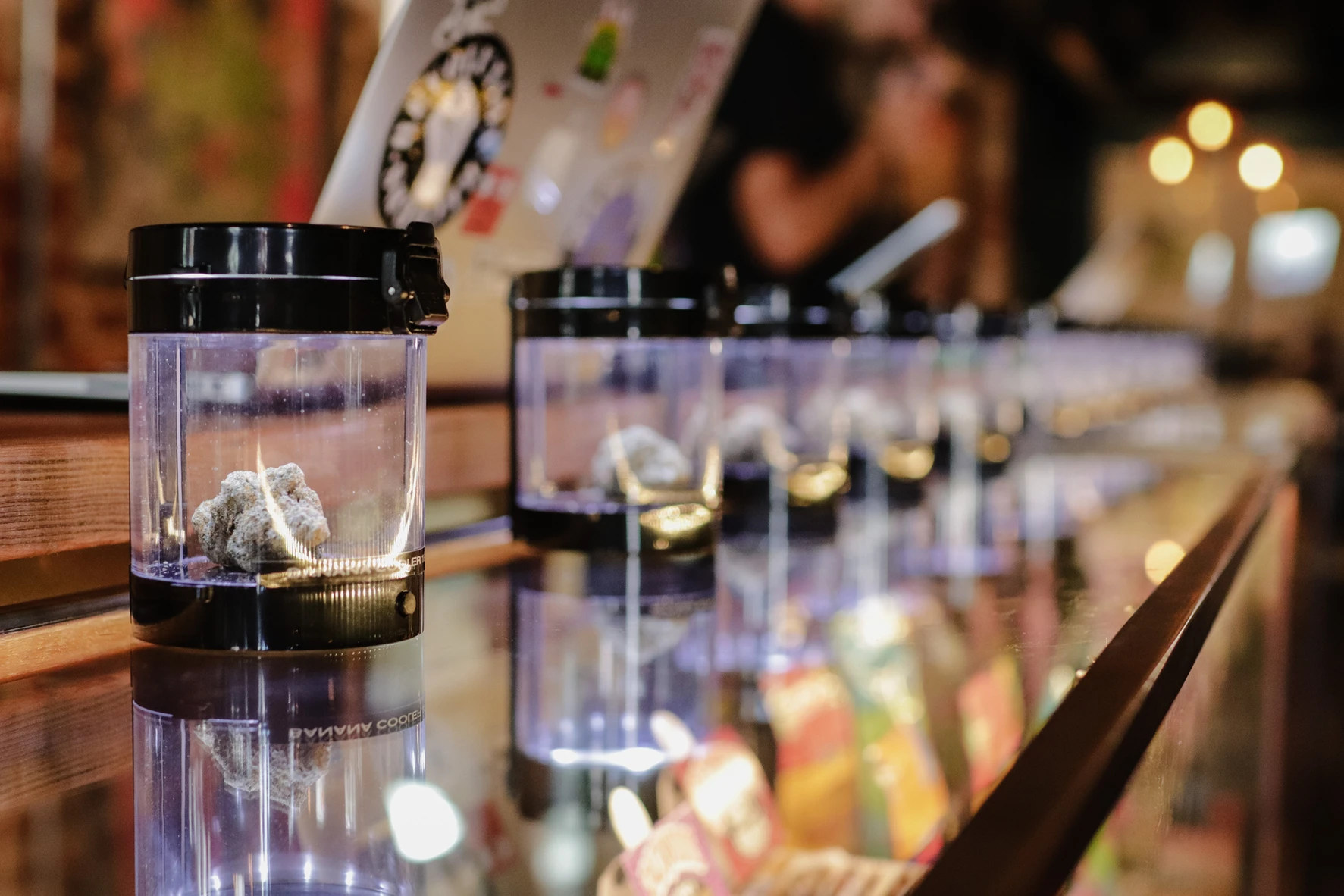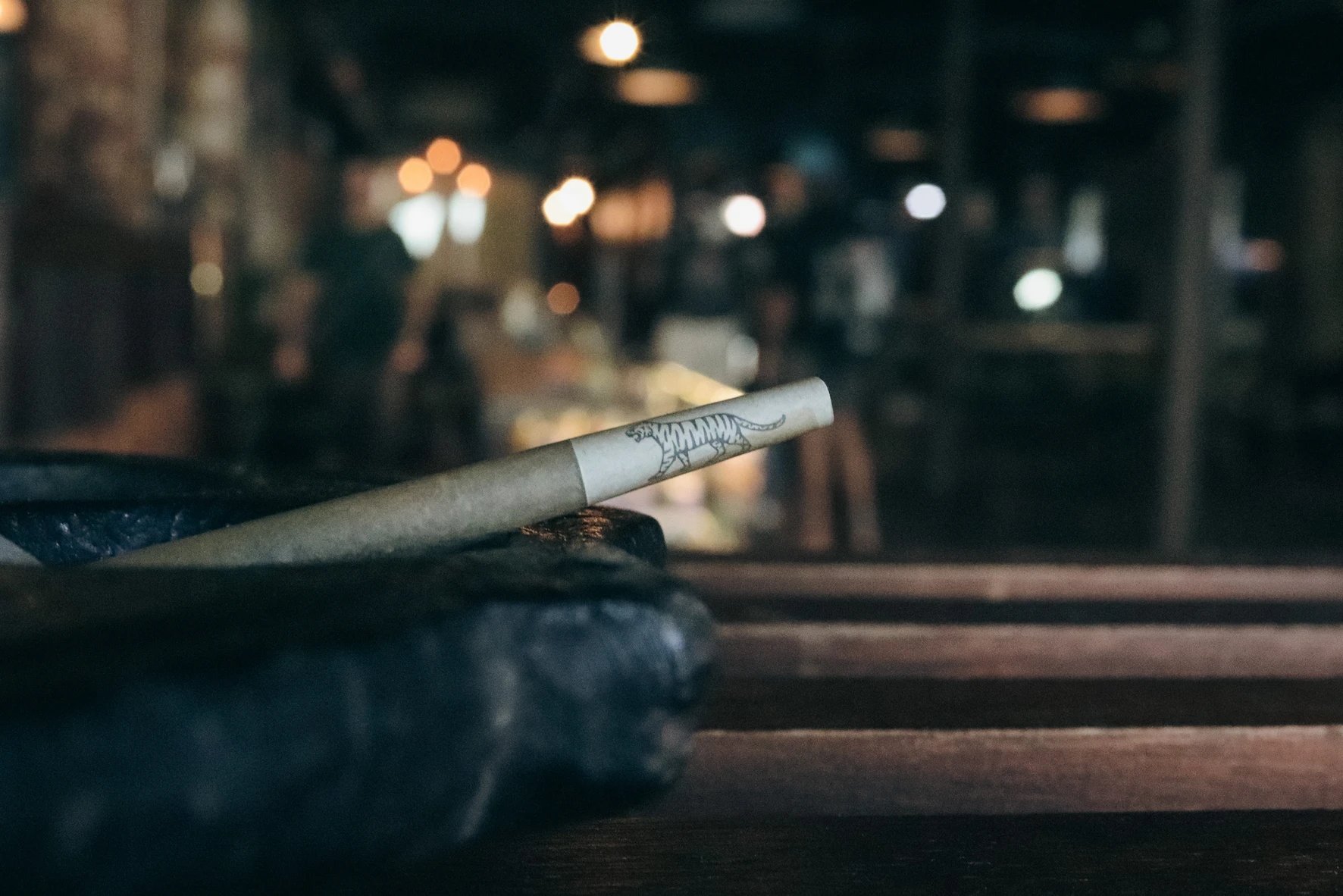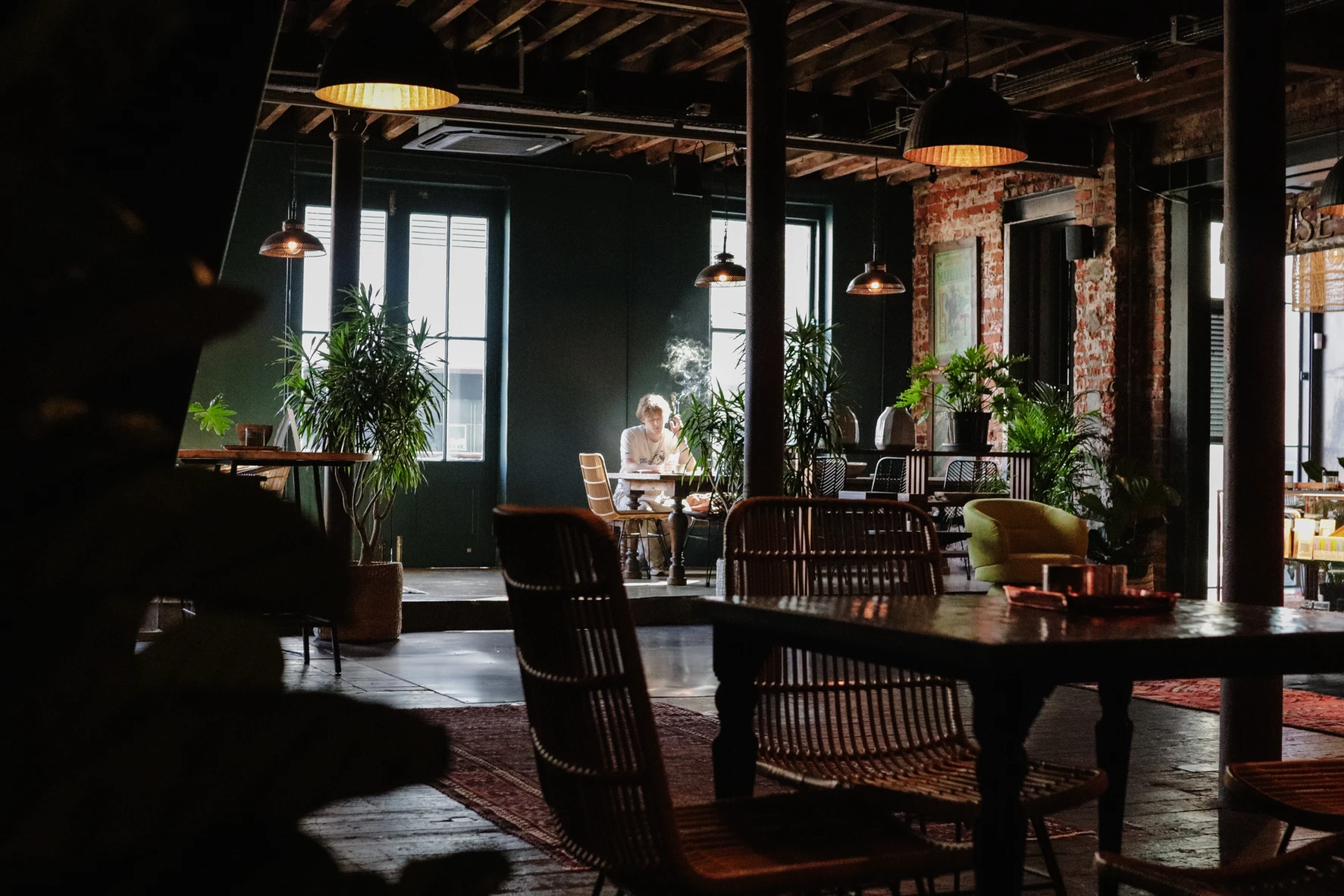Growing Like a Weed
- Life & Style

- Feb 6
- 3 min read
The Rise of the South African Cannabis Club
Words: Shannon Devy
Past the enormous bouncers and up the narrow staircase, you take a left at the top of the stairs and enter a large, warmly lit industrial space littered with lush ferns, Persian carpets, deep sofas and low coffee tables. There are ashtrays and chess boards on every surface. Through a distinctive atmospheric haze, you’ll notice the bar ahead of you. No bottles of wine, vodka or whiskey glint in the lamplight here. In their place, a neat line of glass jars, each topped with a magnifying glass in the lid, so you can better examine the delicate trichome crystals on the cannabis buds within.
This is The Blind Tiger – one of many new private members-only cannabis clubs cropping up all over the Cape Town CBD (no pun intended). These clubs operate in what many consider a dubious legal grey area to supply cannabis enthusiasts with expertly-grown, creatively-named buds, joints, tinctures, snacks and vapes in all manner of strains and strengths for consumption on the premises, or at home. Like its famous Amsterdam counterparts, The Blind Tiger serves coffee and food, but no alcohol (although you’re permitted to bring your own, if you so wish). To become a member is easy. You simply pay a low membership fee (about R50) on top of whatever it is you’re purchasing, and you’re good to go.

So how did South Africa, a country which used to arrest an estimated 200,000 people a year for cannabis-related offences, get here? The journey to marijuana decriminalisation in South Africa began in 1997, when Gareth Prince – a practicing Rastafarian – applied to the Law Society of the Cape of Good Hope to become an attorney, only to be rejected because he had two criminal convictions for cannabis possession. Prince argued that his use of cannabis was religious, and this denial violated his right to religious freedom. The case went to court. Prince lost that round, but in 2017, along with two other cannabis activist, Jeremy Acton and Jonathan Ruben, Prince again approached the courts, arguing that the Drugs Act and Medicines Act that criminalised the cultivation and possession of marijuana for personal use violated South African citizens’ rights to privacy as enshrined in Section 14 of the Constitution.

This time around, Prince and his associates were successful, and on the 18th of September 2018, the use and cultivation of marijuana by adults in a private space was decriminalised by the Con Court, followed by the publication of the Cannabis of Private Purposes Bill of 2020, which has since passed parliamentary scrutiny and is expected to soon be finalised into law.
While the sale and distribution of marijuana is still illegal, the decriminalisation of private cultivation and use has created enough of a loophole for clubs and dispensaries to thrive. By purchasing a membership to a club or a dispensary, customers are technically pooling resources for the private, personal cultivation of cannabis, and when buying the products on sale, they’re technically paying the club to grow and prepare these products on their behalf. In this way, customers are essentially purchasing the use of land and equipment, gardening services and expertise – not the weed itself. It’s an interesting workaround, but as the industry becomes more legislated and the regulations tighten up, it’s likely that these institutions will face a number of legal issues in the future. For now, they’re striking while the bong is hot.
The update to cannabis regulation in South Africa mirrors a shift in public perception around the drug. The government is actively working to address the stigma around the drug in order to unlock the massive economic potential of a formal cannabis industry, which some estimates predict could create over 25,000 jobs and add about R28 billion to the national economy. That’s not to mention the economic and employment opportunities that could be created through a thriving hemp industry, or the millions of Rands saved by ending arrests and prosecutions for minor cannabis offences. In his 2023 State of the Nation address, President Ramaphosa pledged to create a fully-fledged cannabis industry to capitalise on this potential, and National Cannabis Master Plan is currently in development. How long this will take to roll out remains to be seen – the government seems to be dragging its feet – but the prevailing opinion is that, in the end, marijuana will probably be legislated in a similar way to alcohol, using many of the same frameworks.

For now, cannabis clubs and dispensaries are flourishing in the gap. If you’re in Cape Town anytime soon, I’d encourage you to visit The Blind Tiger. It really is a lovely venue, and whether or not you’re imbibing directly, you may notice that comedy shows there are suspiciously funny.
WHERE TO FIND US
28 Hudson Street,De Waterkant,Cape Town







Comments